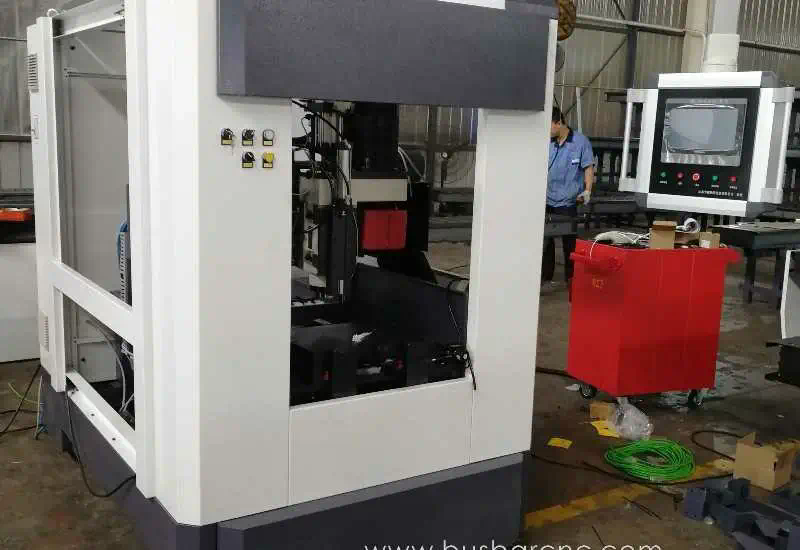Environmental sustainability is a critical issue facing industries worldwide, including the manufacturing sector. With the increasing awareness of environmental impact and the urgent need to reduce carbon footprint, green manufacturing practices have gained significant attention. In the context of Computer Numerical Control (CNC) technology, which plays a vital role in modern manufacturing processes, there is a growing emphasis on implementing environmentally sustainable practices to minimize waste, energy consumption, and overall environmental impact.
CNC technology has revolutionized the manufacturing industry by enabling precise and efficient production processes. However, traditional CNC manufacturing methods often involve high energy consumption and material waste, leading to environmental concerns. As a result, manufacturers are increasingly turning towards green manufacturing principles to align their operations with sustainability goals. By integrating environmental considerations into CNC technology, companies can reduce their ecological footprint while improving operational efficiency and cost-effectiveness.
The Importance of Environmental Sustainability in CNC Technology
Reducing Energy Consumption
One of the key aspects of green manufacturing in CNC technology is the focus on reducing energy consumption during the production process. By optimizing machine settings, tool paths, and cutting parameters, manufacturers can minimize energy usage without compromising on production quality. Additionally, the use of energy-efficient CNC machines and systems can further contribute to lowering overall energy consumption in manufacturing facilities.
Minimizing Material Waste
Another crucial element of environmental sustainability in CNC technology is the reduction of material waste. Traditional manufacturing processes often result in significant material wastage due to inefficient cutting strategies and suboptimal tool utilization. By implementing advanced cutting techniques, such as high-speed machining and adaptive machining, manufacturers can minimize material waste and improve resource efficiency.
Implementing Sustainable Materials
In addition to reducing energy consumption and material waste, using sustainable materials in CNC manufacturing is essential for promoting environmental sustainability. By choosing eco-friendly materials, such as recycled metals and biodegradable plastics, manufacturers can reduce the environmental impact of their products and operations. Furthermore, the adoption of circular economy principles, such as material recycling and reuse, can help minimize the consumption of natural resources and mitigate waste generation.
Green Manufacturing Initiatives in CNC Technology

Energy-Efficient CNC Machines
To support environmental sustainability in CNC technology, manufacturers are increasingly investing in energy-efficient CNC machines. These machines are designed to optimize energy usage during operation, resulting in lower electricity consumption and reduced carbon emissions. By upgrading to energy-efficient CNC machines, companies can achieve significant cost savings and environmental benefits.
Waste Reduction Strategies
Implementing waste reduction strategies is another critical aspect of green manufacturing in CNC technology. By analyzing and optimizing cutting processes, tool selection, and material utilization, manufacturers can minimize scrap generation and enhance resource efficiency. Additionally, incorporating recycling programs for metal chips and other waste materials can further reduce the environmental impact of CNC manufacturing operations.
Sustainable Supply Chain Management
Green manufacturing in CNC technology also involves promoting sustainability across the supply chain. Manufacturers are encouraged to work closely with suppliers to source environmentally friendly materials and components. By establishing partnerships with sustainable suppliers, companies can ensure the ethical sourcing of raw materials and reduce the overall environmental footprint of their products.
Benefits of Environmental Sustainability in CNC Technology
Cost Savings
Embracing green manufacturing practices in CNC technology can lead to significant cost savings for companies. By reducing energy consumption, material waste, and operational inefficiencies, manufacturers can lower production costs and enhance profitability. Additionally, implementing sustainable practices can help companies avoid regulatory fines and penalties associated with environmental non-compliance.
Enhanced Brand Reputation
Adopting environmentally sustainable practices in CNC technology can enhance a company’s brand reputation and market competitiveness. Consumers are increasingly prioritizing eco-friendly products and environmentally responsible companies. By showcasing a commitment to sustainability, manufacturers can attract environmentally conscious customers and differentiate themselves in the marketplace.
Regulatory Compliance
Environmental sustainability in CNC technology is not only beneficial for business operations but also crucial for regulatory compliance. Governments around the world are implementing stricter environmental regulations to combat climate change and protect natural resources. By adhering to green manufacturing standards, companies can ensure compliance with environmental laws and regulations, avoiding potential legal issues and reputational damage.
Future Trends in Green Manufacturing and CNC Technology
Digitalization and IoT Integration
The future of green manufacturing in CNC technology lies in digitalization and the integration of Internet of Things (IoT) technologies. By leveraging data analytics, machine learning, and real-time monitoring capabilities, manufacturers can optimize production processes, minimize energy consumption, and reduce waste generation. IoT-enabled CNC machines can communicate and collaborate seamlessly, enabling smart and sustainable manufacturing operations.
Additive Manufacturing and 3D Printing
Additive manufacturing, including 3D printing, is poised to revolutionize green manufacturing in CNC technology. By layering materials to build complex parts, additive manufacturing processes generate minimal waste compared to traditional subtractive machining methods. Additionally, 3D printing enables the use of sustainable materials and customization options, further advancing environmental sustainability in manufacturing.
Circular Economy Practices
The adoption of circular economy practices is gaining momentum in the manufacturing industry, including CNC technology. By embracing principles of reduce, reuse, and recycle, companies can create a closed-loop system where materials and resources are continuously circulated and repurposed. This approach not only minimizes waste but also fosters resource efficiency and environmental stewardship in CNC manufacturing.
In conclusion, environmental sustainability and green manufacturing are integral to the future of CNC technology and the manufacturing industry as a whole. By prioritizing energy efficiency, waste reduction, sustainable materials, and supply chain management, companies can mitigate their environmental impact and drive long-term business success. Embracing green manufacturing practices not only benefits the environment but also enhances cost savings, brand reputation, and regulatory compliance. As technology continues to evolve, the adoption of digitalization, additive manufacturing, and circular economy practices will further advance environmental sustainability in CNC technology, shaping a more sustainable and resilient manufacturing ecosystem.
https://inorthshore.com/
